Innovative New Zealand companies develop profitable future for NZ wool industry
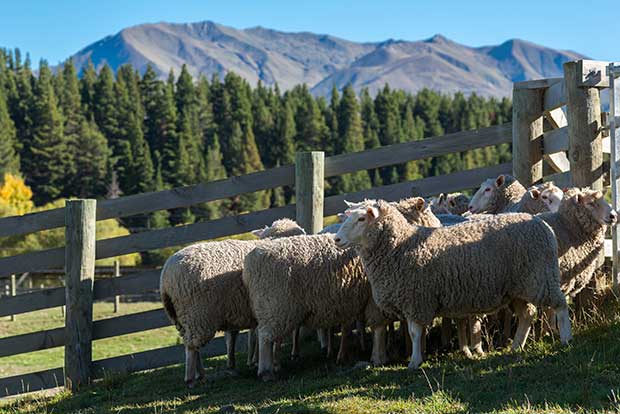
Wool was once the economy’s great white hope. now, after years in the doldrums, some innovative businesses are helping the product rise again
Words: Lucy Corry
The Astino sounds like the name of a cocktail or a fancy European sports car, but you’re unlikely to find it anywhere near a bar or even a parking lot. It is in fact a trademarked breed of sheep that was developed in 2017.
The Astino prefers the fresh air and steep terrain of our high country farms.
This cuddly character – and its cousins – could be a magic bullet for the dwindling fortunes of the New Zealand wool industry. While wool was once the warm backbone of the economy, there’s little international demand for the fleeces that once went into carpets and textiles all over the world (and there are only so many knitted jumpers a person can own).
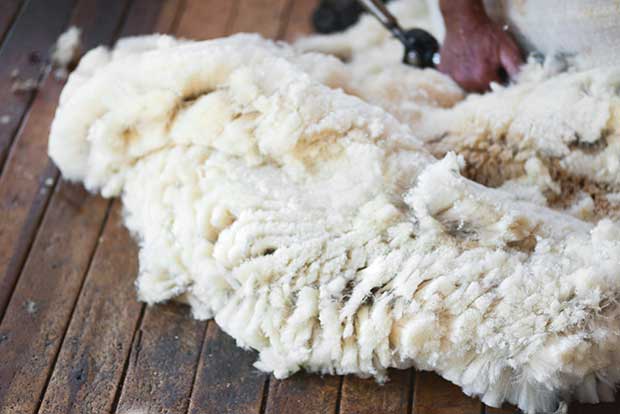
A report prepared by the Ministry for Primary Industries in December last year says that the wool market remains ‘subdued’, with meagre overseas takers to boost traded volumes or prices.
On the other hand, fine wool exports (which account for eight per cent of New Zealand’s wool export volume) have risen nearly 20 per cent over the past year and are approaching record levels.
This is where the Astino comes in. It’s bred specifically for premium wool-based healthcare products by Lanaco, a New Zealand wool innovation company.
Lanaco chief executive Nick Davenport says realizing that wool could be used as a filter instead of many mono-functional synthetic fibres was a lightbulb moment.
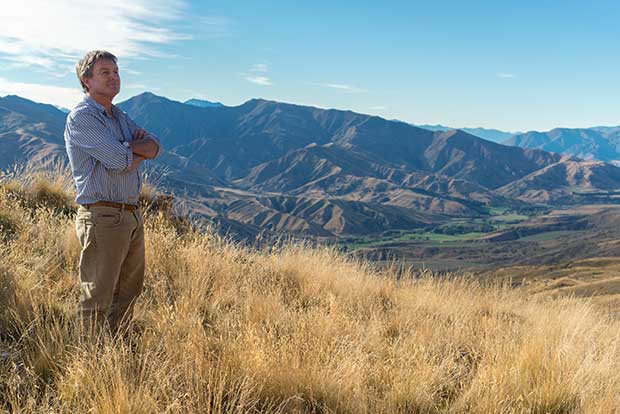
Astino breeder Andy Ramsden.
It ticks all the boxes: it’s bacteria-resistant, manages moisture, removes toxins from the air and is easy to breathe through.
Lanaco went a step further and set about creating their own supply chain “where we could write the performance we required from the wool and set that as a breeding objective”.
FARMER’S BEST FRIEND
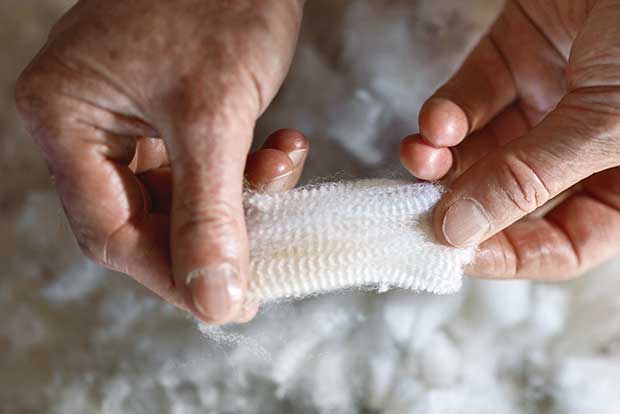
“By setting the unique fibre characteristics as a breeding attribute, and recognizing the need of farmers willing to grow for us, we are able to create a breed with exceptional returns and the fibre we needed,” Nick explains.
Breeder Andy Ramsden, who has an impressive pedigree in developing premium animals, created the Astino breed to meet Lanaco’s precise requirements. He believes innovation is critical to the longevity of the local wool industry.
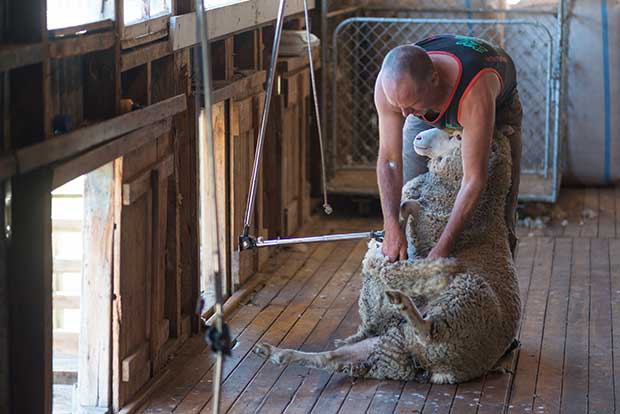
“It’s increasingly clear that supplying generic wool on the open market is not sustainable,” Andy says.
“The way forward for farmers is twofold – transitioning to innovative new breeds that are branded and controlled, and forming partnerships with manufacturers such as Lanaco which has the global reach and marketing capability to earn a premium.”
BEYOND CLOTHING AND CARPETS

While premium New Zealand merino wool is now well-known for its use in high-end clothing brands like Icebreaker, Untouched World and, more recently, Allbirds shoes, Lanaco is targeting the healthcare market.
The Astino breed was developed specifically for products like its signature Helix Filter, the key component in an anti-pollution facemask launched in several Asian countries.
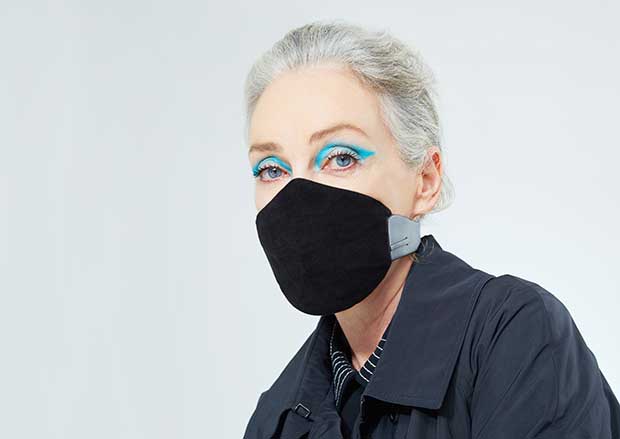
The Healthy Breath MEO masks, co-designed with fashion designer Karen Walker, are as far from a roll of carpet as you can get.
Kiwi home-ventilation company Unovent also uses Lanaco’s wool filters to help people breathe more easily. Unovent started working with Lanaco in late 2017, adding the wool filters as a last line of defence for allergy sufferers and managing director John Wadsworth says the woollen filters are a “game changer” for people with respiratory health issues.
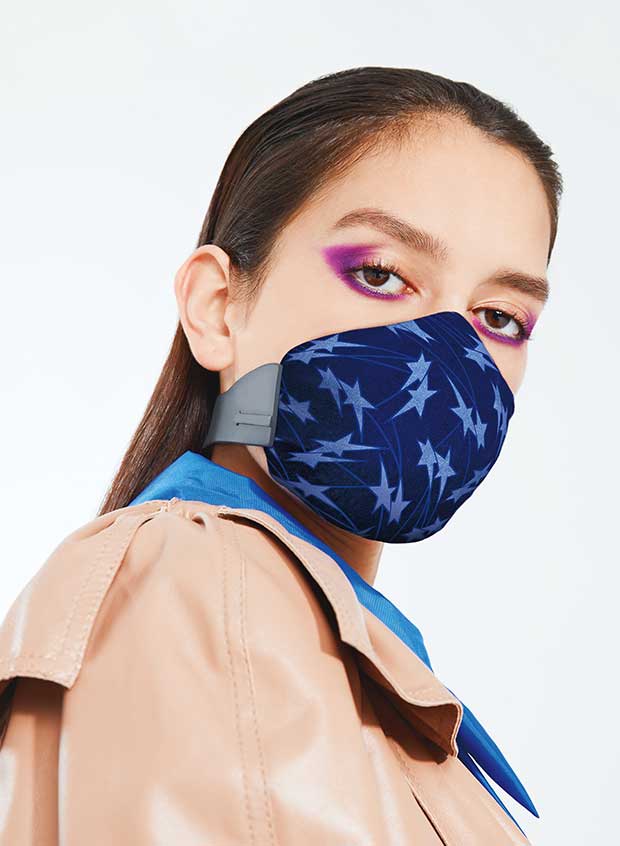
A BELLY FULL OF WOOL
When it comes to harnessing wool’s unique insulation properties, Woolcool is thinking outside the (polystyrene) box. This product, made from biodegradable and compostable felted sheep’s wool sealed within recyclable food-grade wrap, keeps hot products hot and cold products chilled.
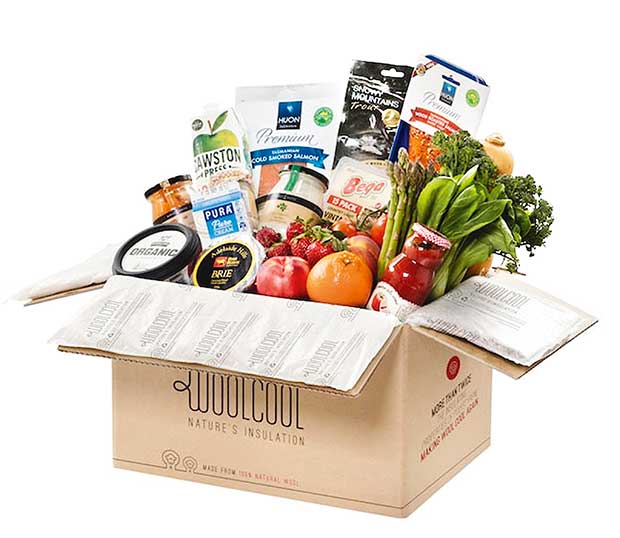
Its naturally soft and pillowy nature also means it can be used to protect items from bumps, bruises and breaks while in transit. “The best way to explain it is to think of Woolcool like housing insulation,” says company chief executive Joanne Howarth.
“It works because wool is effective at absorbing moisture from the air. This minimizes humidity and condensation to maintain stable temperatures in packaging.”

Howarth says the product outperforms traditional polystyrene; independent scientific tests show that Woolcool-insulated boxes and pouches keep contents packed at 1 degree C below 5 degrees C for at least 24 hours.
The company uses sheep-belly wool that would otherwise be sent to landfill – it’s too coarse to be made into clothing and can’t take up dye so it’s useless for textiles or carpet. New Zealand-grown sheep-belly wool accounts for about 25 per cent of the product, but Woolcool hopes to increase this proportion. “We would use 100 per cent New Zealand wool if we could, but there just isn’t enough of it,” Joanne says.
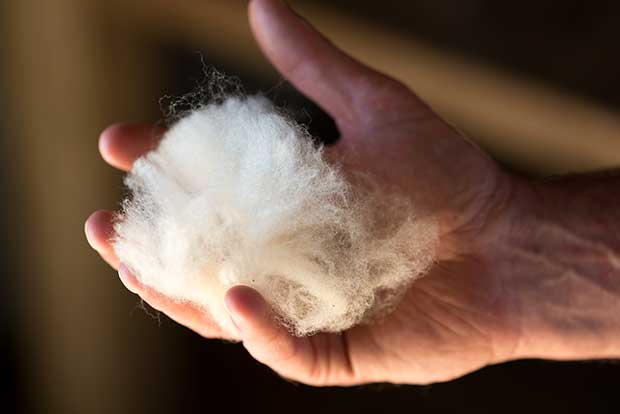
Unlike polystyrene, Woolcool is fully biodegradable and can be added to compost since it breaks down quickly in the environment. The wool felts can also be repurposed in a several ways; lining kitty-litter trays or hanging baskets, or laid as weed mat in garden beds before mulching, are just some examples.
Home food delivery service My Food Bag started using Woolcool in May 2017. Founder and co-CEO Cecilia Robinson says it was an easy decision to make.
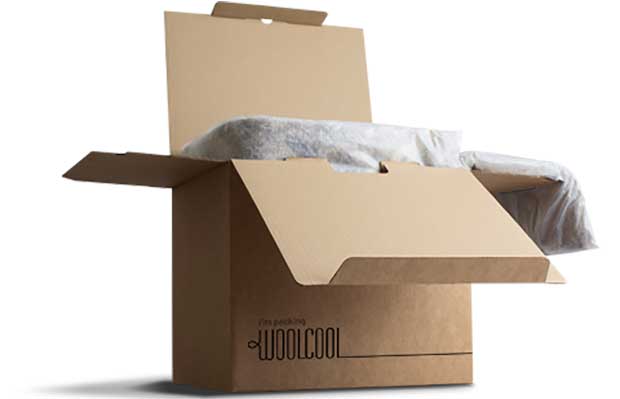
“Moving to Woolcool completely changed our packaging process and has allowed us to move to a one-box solution,” she says. “We’re proud to be using a product that is biodegradable and compostable, and with our own recycling programme in place we’re able to keep using the Woolcool again and again.”
Love this story? Subscribe now!
 This article first appeared in NZ Life & Leisure Magazine.
This article first appeared in NZ Life & Leisure Magazine.

